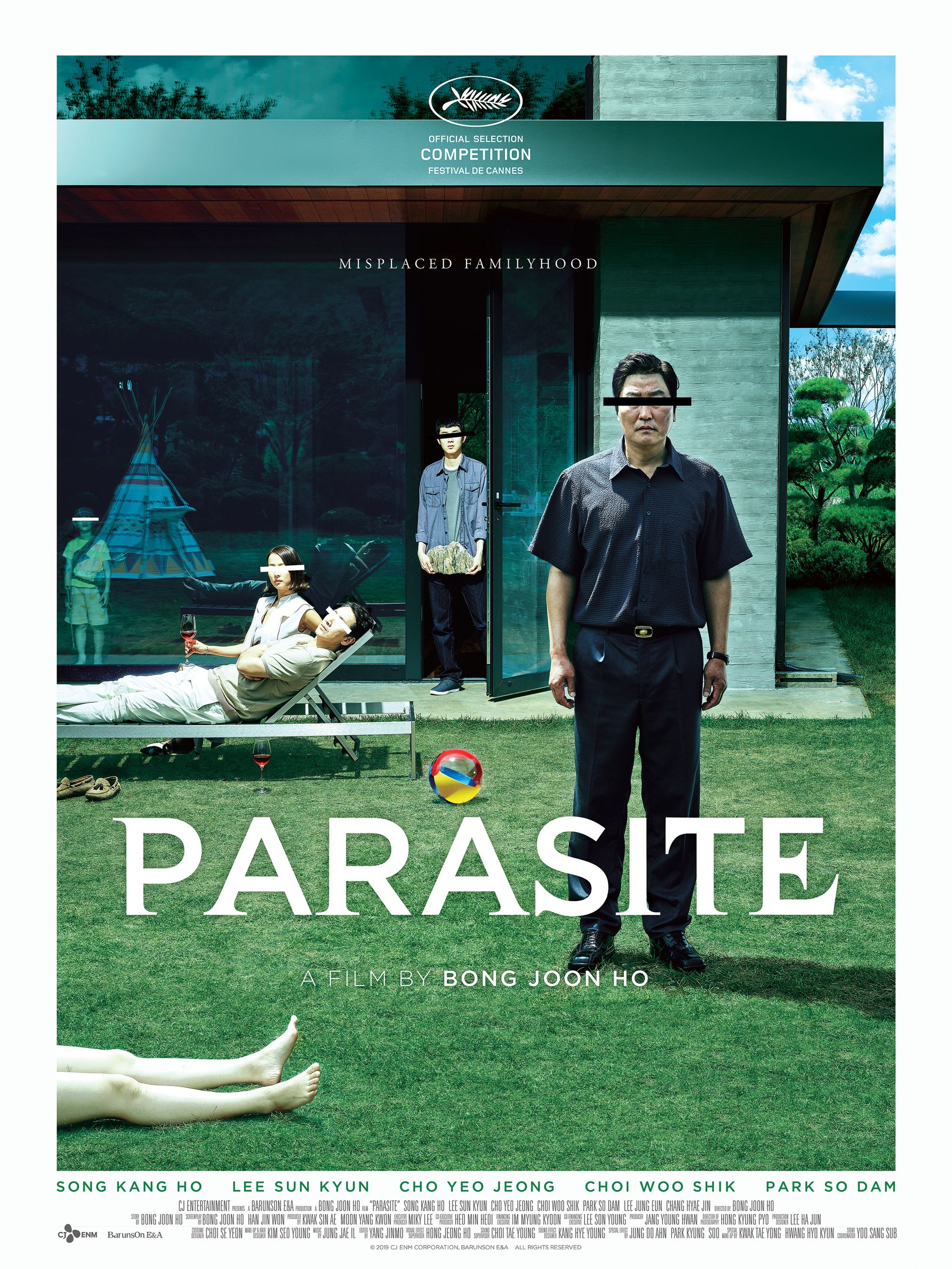The South Korean film Parasite, the Grand Prize winner of the Cannes Film Festival, has finally made its mark in the United States, after premiering in South Korea back in May. Parasite is directed by Bong Joon Ho, who is renowned and considered to be one of Korea’s film heroes. Bong’s previous films include Okja and Snowpiercer, which tackle the issues of animal cruelty and social inequality, respectively.

Parasite tells the story of the poor Kim family who cons its way into working for the extremely rich Park family – telling anything more about the film would take away from the jaw-dropping experience that it is. The less spoilers, the better. Part of its addictive charm is the element of surprise that continually catches viewers off guard.
It’s difficult to define genre boundaries for such a dynamic narrative, but to put it loosely, it’s a black comedy-turned-thriller. The way Bong crafts the film is absolutely fascinating. It’s comedic at first, as it follows the Kim family leeching off of the Park family’s money for all they’re worth. Soon enough, viewers are able to figure out that something is going to go terribly wrong – and it does. The suffocating tensions gradually escalate after the viewer is already on the edge of their seat to a spectacular climax.
The successful execution of the film has much to do with the incredible acting. Veteran actor Song Kang Ho, who has worked with Bong on multiple other projects, showcased a fantastic performance as the father of the Kim family with younger faces such as Choi Woo Shik and Park So Dam, who are set to become A-list celebrities in South Korea after working with Bong.
Because of the cast's stellar acting and Bong’s careful directing, my mind was spinning after watching the film, and I couldn’t stop thinking about it for the rest of the night – there were so many layers to unpack.
There is an obvious commentary on classism, especially in Korean society where it seems nearly impossible to rise up the social ranks. If a master con family can’t achieve a comfortable lifestyle, who can?
The disparity between the two families is painfully apparent, demonstrated by the patriarch of the Park family’s disgust with the mere scent of the poor. Outwardly, the Park family is perfect with two gorgeous children, a beautiful home and a penchant for supposed generosity. But as the matriarch of the Kim family implies: With enough money and resources to simply survive, wouldn’t everyone be a little nicer?
South Korea has experienced increasing disparity between social classes as the top 20 percent of Korean families make seven times as much as the bottom 20 percent does, according to UPI. The media portrays the rich as glamorous and glitzy, so it’s easy to see where the resentment lies and why this film has resonated with many Koreans.
**SPOILERS AHEAD**
Toward the end of the film, there is a poignant series of scenes where the Kim family rushes back to their basement home flooded with sewer water, desperately attempting to salvage what they can. Flash forward to when they’re huddled on the ground with hundreds of other people in a school gym, the father says to his son, “Do you know what plan never fails? No plan.” These scenes brought a sorrowful light on the plights of the family that wasn’t depicted in the comedic rendition during the first half of the movie. A sense of hopelessness and pity for the family pervades.
It’s all too easy to relate to the sentiment of desiring something more in our lives and ultimately not being able to achieve it. There’s definitely a frustrated bitterness felt throughout the story that Bong is purposefully bubbling right beneath the surface.
In an already teeming entertainment industry, it’s surprising that Korean films have not made such a splash already in the United States. With Oscar buzz surrounding Parasite, this one has to be it. Seeing the movie a second time gave me even more admiration for the emotional roller coaster, so I would love to see Parasite receive the global appreciation it deserves.
Thumbnail courtesy of Wikimedia Commons.